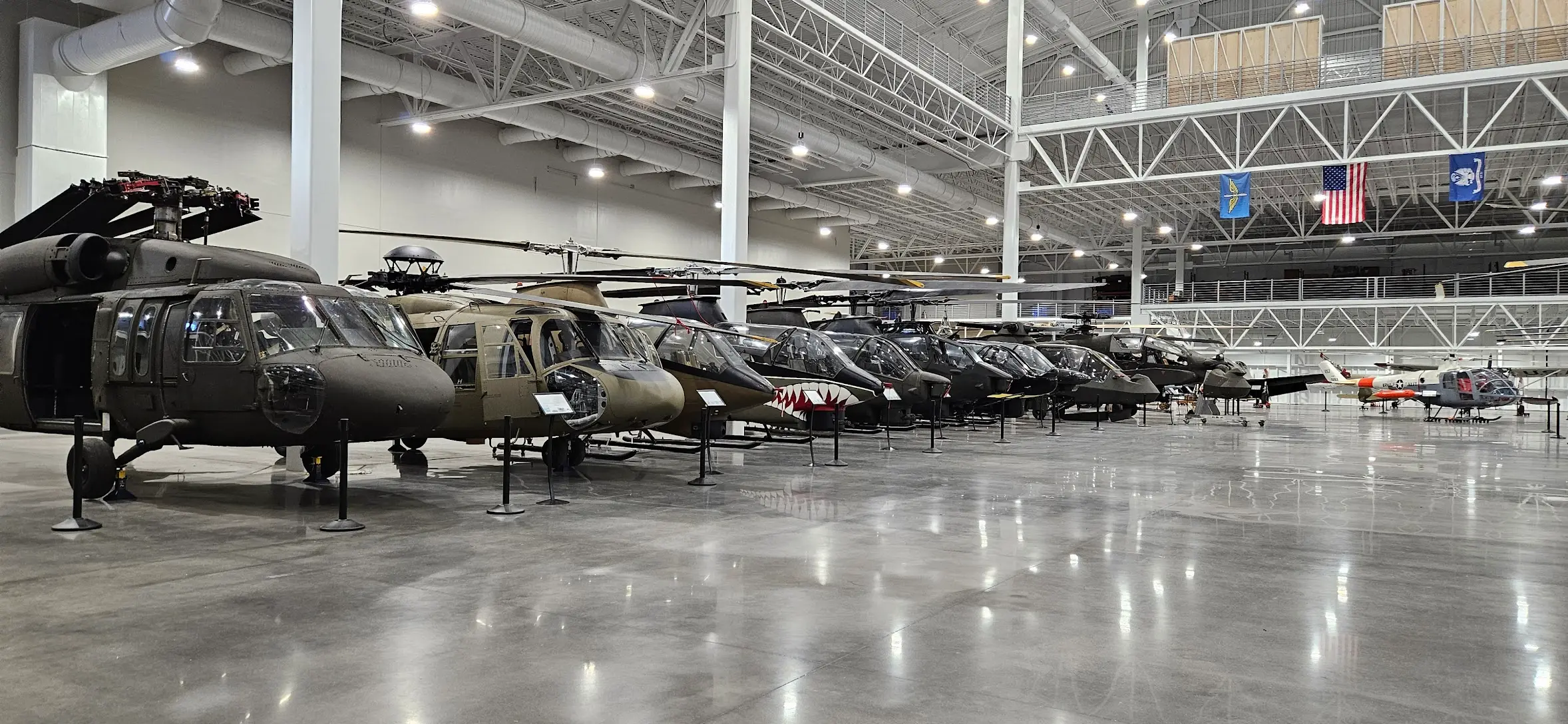
WILLIAM A. HOWELL
AVIATION TRAINING SUPPORT FACILITY
Education,
Preservation, Support
& Engagement
The LTC William A. Howell Aviation TSF is one of four highly specialized facilities in the US Army using historical artifacts as resources and equipment for the practical application of skill development for educating soldiers, improving their training through knowledge of history and technology.
LTC William A. Howell
William A. Howell enlisted in the U.S. Army in 1938, serving in field artillery before earning a commission as a 2nd Lieutenant of Infantry. He distinguished himself in the North African and Italian campaigns during World War II and later transitioned to aviation as an Army liaison pilot. In the Korean War, Howell was instrumental in establishing Army Air Sections within the Republic of Korea Army and setting up training programs for pilots and mechanics.
Throughout his career, Howell held key command roles, including leading the 506th Helicopter Company and commanding the Army’s first presidential flight support unit, becoming the first Army pilot authorized to fly President Dwight Eisenhower. After retiring, he became the first curator of the U.S. Army Aviation Museum, significantly contributing to its development.
Howell’s 26-year service included combat in North Africa, Italy, and Korea, flying over 20 types of aircraft and logging more than 5,000 flight hours. His numerous decorations, including the Bronze Star and the Order of Saint Michael, reflect his distinguished service and leadership. His legacy is honored with the William A. Howell Training Support Facility at Fort Novosel.



The Collection
The TSF is where the Branch stores its most priceless artifacts – those that are essential for interpreting key aspects of Army Aviation history, technological development, and the Profession of Arms – which have profoundly shaped Army history. Many of these artifacts represent the only known surviving example of a particular model, variant, or configuration which offer crucial insights into the evolution of military hardware while underlining the cultural, political, industrial, and doctrinal significant aspects of the evolution of military hardware.
Key Functions
Education
The TSF serves as a dynamic center for learning, going beyond traditional classroom settings. Utilizing a combination of historical artifacts, documents, and modern technology to provide soldiers with a comprehensive and engaging understanding of Army Aviation.
Preservation
The facility is a vital element in preservation, housing and preserving a wide range of aviation artifacts, including aircraft, engines, equipment, and documents, allowing soldiers to connect with the past, learn from the experiences of the past, and understand the evolution of Army Aviation.
Training Support
The TSF supports a broad spectrum of training programs for Army Aviation, Joint, and Interagency personnel, ranging from basic to advanced courses for aviators, flight surgeons, operations, and maintenance crews. They provide essential resources and tools necessary for effective instruction, including classrooms, workshops, libraries, and training aids. This support ensures that Soldiers receive the highest quality training throughout their careers.
Community Engagement
We also recognize the importance of connecting with the local community, often engaging in outreach activities, offering educational opportunities to schools, hosting public events, and collaborating with civilian organizations to promote interest in Army aviation. These efforts not only raise awareness of the Army’s mission but also foster positive relationships between the military and the public, strengthening community support for Army Aviation.
Training Support Facilities are vital for maintaining the readiness, proficiency, and expertise of Army personnel. By providing them with a deep understanding of their heritage, the latest technological advancements, and the skills necessary to succeed in their missions, these facilities ensure that the Army remains a highly effective and adaptable force.
Because of this the Aviation TSF is generally closed to the public, but is made open to the general public periodically.
For information about upcoming TSF open house events.
Questions?

